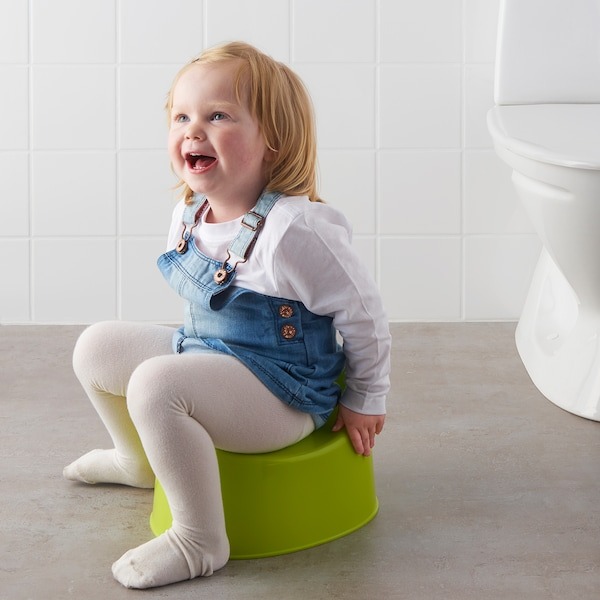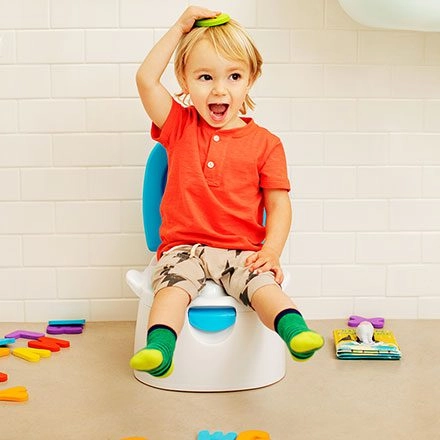Potty training is a significant milestone in a child’s development, marking a transition from diapers to independent toileting. While it can be an exciting time for both parents and children, it’s also a journey that requires patience, consistency, and a positive approach. However, certain pitfalls and missteps can hinder progress and create frustration for everyone involved. Let’s explore some common mistakes to avoid during potty training and equip you with strategies to navigate this important phase smoothly.
Timing is Key: Recognizing Readiness
One of the most crucial aspects of successful potty training is recognizing your child’s readiness. Pushing them before they are developmentally and emotionally prepared can lead to resistance and setbacks.
Physical Readiness
Your child should have developed the necessary physical skills, such as the ability to walk and sit independently, pull their pants up and down, and stay dry for at least two hours.
Cognitive Readiness
They should be able to understand and follow simple instructions, communicate their need to use the potty, and show an interest in the toilet.
Emotional Readiness
Your child should be willing to cooperate and participate in the potty training process, expressing a desire for independence and control over their bodily functions.
Signs of Unreadiness
- Resistance or Fear: If your child shows strong resistance or fear towards the potty or toilet, it might be a sign that they’re not ready yet.
- Lack of Interest: If your child shows no interest in using the potty or imitating others, it’s best to wait until they express more curiosity.
- Major Life Changes: Avoid starting potty training during periods of significant change or stress, such as moving to a new home or the arrival of a new sibling.
Negative Reinforcement: A Counterproductive Approach
Punishing or shaming your child for accidents is a major pitfall to avoid during potty training.
Creating Anxiety and Fear: Negative reinforcement can create anxiety and fear associated with the potty, leading to resistance and setbacks.
Damaging Self-Esteem: Shaming a child for accidents can damage their self-esteem and confidence, making them less likely to participate in the process.
Focus on Positivity: Instead of dwelling on accidents, focus on celebrating your child’s successes, no matter how small. Offer praise, encouragement, and positive reinforcement to motivate and build their confidence.
Inconsistency: Maintaining a Steady Course
Consistency is crucial for successful potty training. Inconsistencies in routines, expectations, or responses can confuse your child and hinder their progress.
Establish a Routine: Create a consistent potty routine, offering your child opportunities to use the potty at regular intervals throughout the day.
Clear Expectations: Communicate your expectations clearly and consistently, using simple language that your child can understand.
Positive and Supportive Responses: Maintain a positive and supportive attitude throughout the process, even during accidents. Avoid showing frustration or disappointment, as this can discourage your child.

Over-Prompting: Allowing for Independence
While it’s important to encourage your child to use the potty, avoid constantly reminding or prompting them.
Self-Initiation: Allow your child the opportunity to recognize their own bodily signals and initiate potty trips independently.
Observing Cues: Pay attention to your child’s cues, such as squatting, fidgeting, or holding their crotch, which might indicate they need to use the potty.
Gentle Reminders: Offer gentle reminders at regular intervals, but avoid excessive prompting or nagging.
Comparing to Others: Each Child is Unique
Avoid comparing your child’s potty training progress to that of other children. Every child develops at their own pace, and comparing them to others can create unnecessary pressure and anxiety.
Individuality: Celebrate your child’s unique journey and focus on their progress, not on external comparisons.
Patience and Support: Offer patience and support throughout the process, recognizing that setbacks and regressions are normal.
Avoid Competition: Potty training is not a race. Focus on your child’s individual needs and readiness rather than trying to keep up with others.
Potty training is an exciting yet challenging journey for both parents and children. By avoiding common pitfalls like negative reinforcement, inconsistency, over-prompting, and comparisons to others, you can create a positive and supportive environment that fosters your child’s success.
Remember, patience, consistency, and a focus on your child’s individual readiness are key. Celebrate their achievements, offer encouragement during setbacks, and embrace the learning process. With the right approach and a sprinkle of humor, potty training can be a smooth and rewarding experience for everyone involved.
The Pressure Cooker: Steering Clear of Stressful Situations
Potty training should be a positive and encouraging experience for your child. Avoid creating stressful situations that can hinder progress and lead to negative associations with toileting.
Forceful Approaches: Never force your child to sit on the potty against their will. This can create anxiety and resistance, making them less likely to cooperate in the future.
Punishments or Shaming: Avoid scolding or shaming your child for accidents. Accidents are a natural part of the learning process, and a negative reaction can damage their confidence and self-esteem.
Unrealistic Expectations: Don’t expect your child to master potty training overnight. It’s a gradual process that requires patience and understanding. Celebrate small victories and offer support during setbacks.
Comparisons to Others: Avoid comparing your child’s progress to other children. Every child develops at their own pace, and comparing them to others can create unnecessary pressure and anxiety.

The Potty Time Trap: Avoiding Excessive Sitting
While it’s important to offer your child ample opportunities to use the potty, avoid forcing them to sit for extended periods.
Discomfort and Frustration: Long periods of sitting on the potty can be uncomfortable and frustrating for young children, leading to resistance and negative associations.
Short and Frequent Trips: Instead of lengthy potty sessions, encourage short and frequent trips to the bathroom throughout the day.
Positive Reinforcement: Offer praise and encouragement for any attempts to use the potty, even if they don’t result in success.
The Bribery Trap: Rewarding Sparingly
While rewards can be a helpful motivator during potty training, it’s important to use them sparingly and strategically.
Intrinsic Motivation: The ultimate goal is for your child to develop intrinsic motivation for using the potty, based on a sense of accomplishment and independence.
Over-reliance on Rewards: Over-reliance on external rewards can diminish intrinsic motivation and make it difficult to phase them out later.
Occasional Treats: Offer small, occasional treats or rewards for successful potty trips, but avoid making them the primary focus of the process.
The Clothing Conundrum: Choosing Practical Attire
The clothes your child wears can impact their potty training success.
Easy-to-Remove Clothing: Opt for loose-fitting clothes that are easy for your child to pull up and down independently.
Avoid Complicated Fasteners: Skip belts, overalls, or other clothing with complicated fasteners that can be difficult for little hands to manage.
Embrace Accidents: Be prepared for accidents and choose clothes that are easy to clean or disposable during the initial stages of potty training.
The Communication Breakdown: Clear and Consistent Language
Effective communication is crucial for successful potty training.
Simple Language: Use simple and clear language that your child can understand. Avoid using euphemisms or confusing terms.
Consistent Terminology: Use the same words consistently to refer to bodily functions and toileting activities.
Active Listening: Listen attentively to your child’s verbal and non-verbal cues to understand their needs and respond appropriately.

Conclusion
Potty training is a journey that requires patience, understanding, and a positive approach. By avoiding common pitfalls like negative reinforcement, inconsistency, over-prompting, and comparisons to others, you can create a supportive environment that fosters your child’s success.
Remember, every child is unique, and their potty training journey will unfold at its own pace. Celebrate their achievements, offer encouragement during setbacks, and above all, maintain a positive and loving attitude. With your guidance and support, your child will confidently embrace this milestone and embark on a new chapter of independence.





